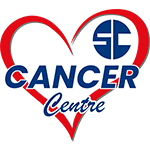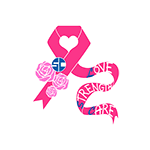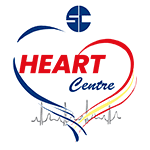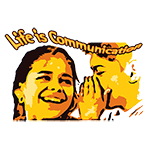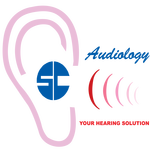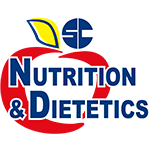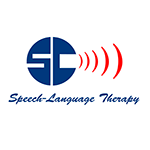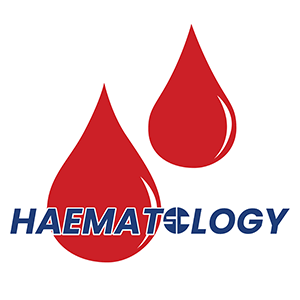
Surviving Cancer with our best in Human Resource & Technology
Cancer Cases are on the increase every year, we at LohGuanLye SPECIALISTS CENTRE understand this need; hence have established a one stop centre for cancer to cater not only for the patients but also their family and friends around them. It provides inpatient and outpatient modern technological and support services and it is ideally located to ensure privacy and provides treatment in a warm & comfortable environment.
Cancer treatment has now become highly specialized in the 21st century. Treatment decision is best made with cancer specialist together with your physician / surgeon as there are many modalities of treatment and many types of chemotherapy drugs available today. Different cancers will require different chemotherapy drugs / regimes.
Consultation with an Oncologist (Cancer Specialist)
- To discuss your diagnosis and plan treatment for you.
- To accurately localize and stage your cancer with various tests available here.
- Depending on the nature and stage of your cancer and the treatment involved, your Oncologist will discuss the various treatment options with you which may involve:
Surgery or
Chemotherapy alone or
Radiation alone or
Hormonotherapy or
Targeted Treatment or
A combination of any of the above
Oncology Services in LohGuanLye SPECIALISTS CENTRE provides
Expert advice by qualified clinical oncologist
Day care chemotherapy
Inpatient chemotherapy
Dietetic advice
Free counselling and education services (Patient Education Unit, Cancerlink & Amanita)
Physiotherapy, psychological support and special support group get-toegthers.
Genetic counselling.
Note: If you are seeing the doctor for the first time, please remember to bring along your recent investigation results, histology report, laboratory results, X-rays, MRI / CT Scans.
Day Care Chemotherapy
We provide day care chemotherapy which will be given in our Oncology Day Care Unit, with nice ambience to minimize the discomfort and to allay anxiety i.e. TV with Astro channels, piped in music, free drinks, nice, friendly and experienced staff and a waiting area for relatives/ friends.
Inpatient Chemotherapy
Some chemotherapy regimes require chemotherapy to be administered as an inpatient case, hence it will be given in the wards.
How is the chemotherapy drug administered?
The drug is usually given by a slow intravenous infusion/ drip directly into a vein or via a chemo port. Chemo port device - located on upper chest under the skin and needle will be inserted on the port to administer chemotherapy. Each time you require the injection, the drug can be given via this chemo port which spares you the pain and inconvenience (smaller veins may be damaged by multiple injections). Sometimes chemotherapy tablet or in capsule form is given by mouth or very occasionally the drug is given directly into a hollow organ affected by cancer e.g. the urinary bladder.
Side Effects
Side effects can be rather depressing i.e. you will worry and fret over your illness. This is understandable, but please talk it out with your doctor, nurse or close friends and relatives. Your social life could be affected. You may need to adjust your lifestyle but, remember this is only temporary.
Side effects due to the drugs
- Nausea: With the availability of newer drugs, this can be controlled or decreased to a minimum.
- Vomiting: This can be readily controlled. You may not vomit, but may lose your appetite or be sensitive to food smells. This will revert back to normal when the treatment is completed.
- Hair Loss: Not all drugs cause this side effect. Should this happen to you, remember you can use wigs, which are very well-made these days. Even people who do not lose their hair wear wigs just to look good! Hair loss could make you feel depressed & miserable, but remember your hair will grow again once the treatment is completed.
- Ulcers: Ulcers in the mouth or gut can be troublesome. Do not hesitate to inform your doctor. You should also inform your doctor of other medications you are taking for other medical conditions.
Increased Chance of Infection
Chemotherapy can reduce the number of blood cells produced by the bone marrow. If the number of white cells in your blood is low, you are more likely to get infections as there are fewer white cells to fight off bacteria. If your temperature goes up, or you suddenly feel unwell, even with a normal temperature, contact your doctor or the hospital straight away. Your regular blood tests will show the number of white cells in your blood. If you get an infection when your white blood cell level is low, you may need to have antibiotics.
Helpful hints for infection
Tell your doctor at once if you develop a temperature as you may need to have antibiotics.
Keep clean. Always wash your hands thoroughly before preparing your food.
Stay away from crowded places and from people who you know to have an infection such as a cold.
Eat fully cooked food.
Activity and care during chemotherapy
It is important that you maintain an adequate diet with sufficient rest while receiving chemotherapy. You may feel tired & listless because of anaemia associated with your cancer or with the therapy.
Remember that your doctors & nurses all work closely together to provide you with quality care. Do not hesitate to discuss any problems you may encounter
Whatever your problem is, please do not give up!
Finish the course
There will be benefits at the end
Side effects are reversible



